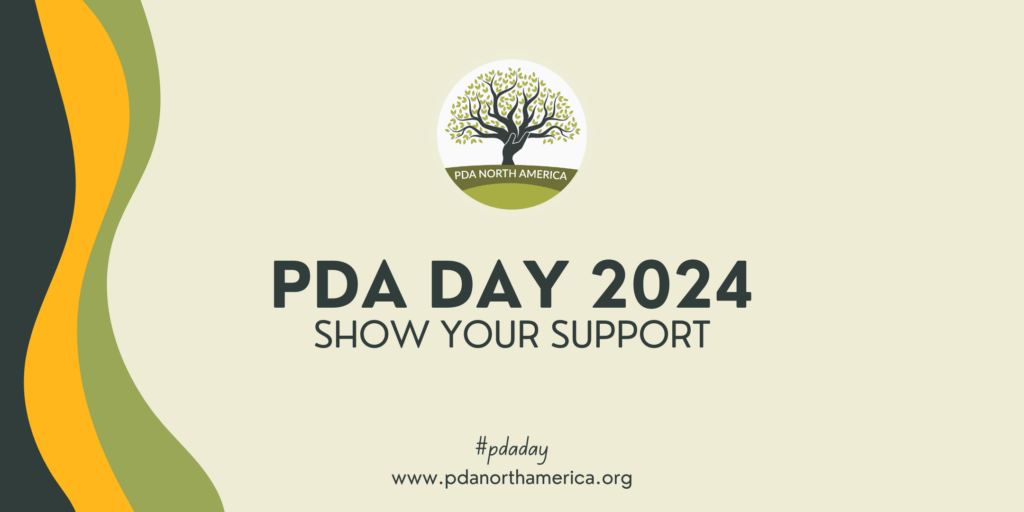By Sandra McConnell, aka PDA Mama Bear
Yes.
If you’ve spent any time learning about Autistic Pathological Demand Avoidance (PDA), you’ve no doubt come across “Low Demand” parenting. But what is it, and is it the magical solution to PDA?
PDA is when a (usually covert) autistic child anxiously craves control, novelty, and autonomy; and vehemently dodges others’ attempts to control them, AKA demands. The resistance isn’t about what the demand is, just that it’s a demand, period. And while they may express resistance as anger, it’s usually coming from terror.
Increasing pressure on them only deepens their anxiety and they escalate their tactics, which includes just about anything that might work: Ignoring, silliness, changing the subject, feigning illness or pain, negotiating terms, doing something shocking or outrageous, eloping, curling into a ball (shutting down), and/or cursing, throwing things, and even lashing out (melting down).
It’s like trying to corner a raccoon: It’s not going to end well for either of you.
Because PDA kids vehemently resist demands, adults quickly decide to neutralize that stressor – demands – and voila! They’re living a Low Demand lifestyle, wherein you stop levying expectations and don’t tell the child to do things. If the PDA kid is in burnout, or the entire household is in crisis, this can be a helpful “hard stop” that provides an opportunity for everyone to take a breather, rest, and reset.
“Okay, so, now what?” parents may wonder.
Low Demand isn’t sustainable outside the home when the parents aren’t around, nor will it work long-term when the child becomes an adult. That makes Low Demand a short-term tactic, not a long-term strategy. And the peace it gets you should be leveraged in a meaningful way, like mending fractured relationships, since a relationship is the key ingredient to your child trusting you enough to learn from you. And one way to pave the way for that is Low Conflict.
First, let’s clarify the difference between the two: Low Demand is mostly referring to physical, action-oriented demands, like tasks, social niceties, brushing teeth, washing dishes, having friends, going to school, doing homework, going to sleep, etc.
Low Conflict refers to the emotional tone with which adults communicate. Is the adult’s tone of voice patient or snarky? Is the adult compassionate or irritated? Do they need to ‘win’ the argument? Do they ever snipe the child’s effort in the right direction by saying, “Finally!” or, “It’s about time!” or, “Why can’t you do this all the time?” This last one is especially toxic because if the PDA person tried to do something good, but it wasn’t perfect and they were criticized for it – that’s the fastest way to kill their motivation, because they’ve just discovered that they’re punished no matter what.
It reminds me of the 1983 movie “Wargames” starring Matthew Broderick, whose character hacked a government supercomputer, accidentally triggered a countdown toward launching nuclear missiles, and ultimately taught the computer (using Tic Tac Toe) that there can be no winners in a nuclear war, and it aborts the launch. And the computer says something amazingly insightful:
“A strange game. The only winning move is not to play.”
When adults have to win, when kids feel cornered and criticized, when they feel pressured to perform but not taught how, when they finally try but are punished anyway, their reasoning mirrors the computer’s.
The only winning move is not to play.
They’ve given up, and this is the worst possible place for them to be.
Low Conflict preempts that by standing down negative emotions that instinctually want to win, punish, and criticize them. Your patience and forgiveness are what they’ll need if they are to succeed. Most PDA kids want to do better anyway, they’re often remorseful and embarrassed after a meltdown. They will need much practice in this world, and they’ll fail repeatedly. Your kinder emotions will encourage them to stay in the game, to keep trying, to keep learning, and to learn from you, about how the world works, and how to control it with finesse. Positive Control. It will lower their anxiety without sacrificing their inner PDA nature, which is usually very justice-oriented. PDA kids with the right support have all the potential to be leaders, inventors, entrepreneurs, revolutionaries, and more.
Adults, this is hard to do. You’re tired and frustrated. You may be harboring resentment. Do whatever you need to dump those emotions. My best piece of advice is to get your own therapy. It puts someone “in your corner” and gives you a place to vent and reset, to calm your own frazzled nerves. You could also take some useless classes you’ve always been curious about: Cooking classes, acting classes, yoga, archery, ballroom dancing, whatever. Find ways to get your headspace in order.
Because Low Demand plus Low Conflict will actually be the conduit through which you mend those relationships, and bring your child to that place you so desperately seek, trust and peace.
Parents, hold steady, you need to stay in the game, too. Don’t give up, it gets better, I promise.
Find more about Sandra on her PDA Mama Bear webiste here.


